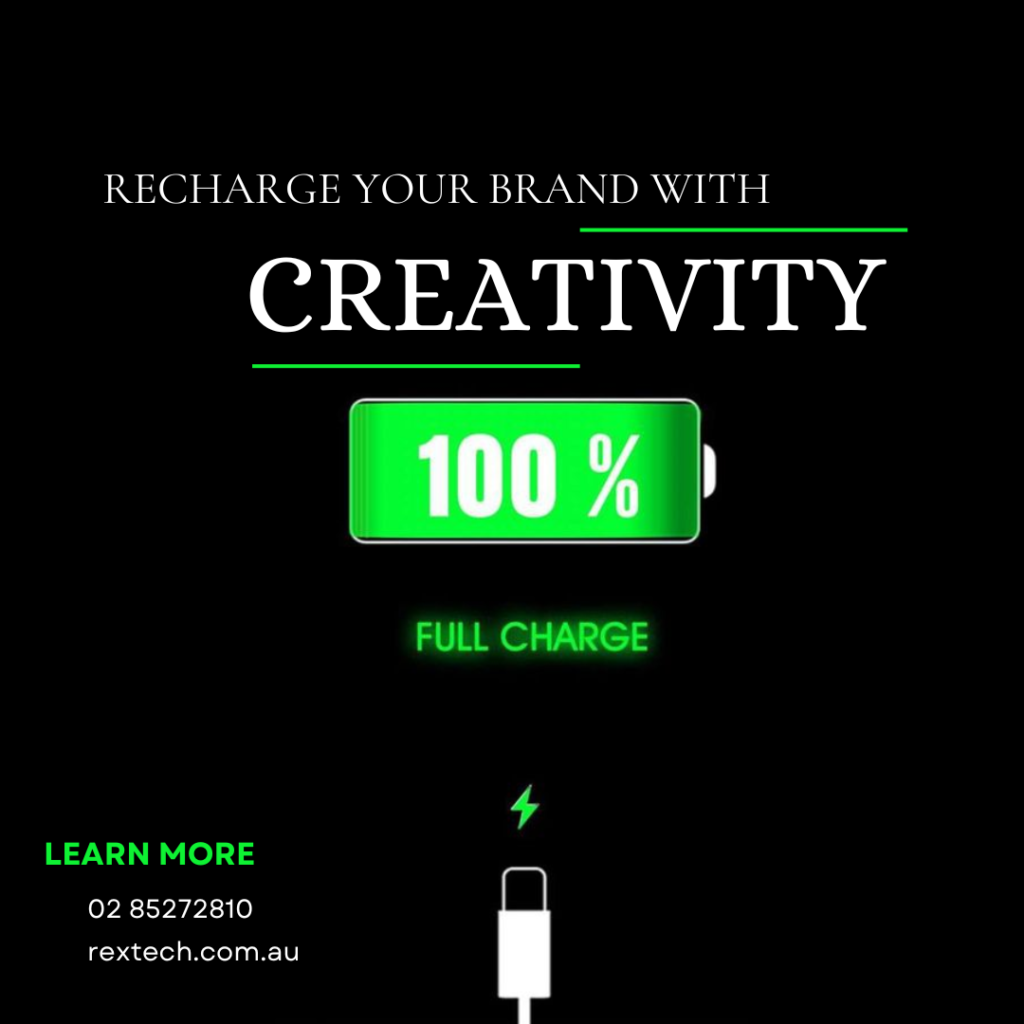The Role of Marketing Agencies
Marketing agencies serve as vital partners for businesses looking to enhance their marketing efforts and reach their target audiences effectively. At their core, these agencies are tasked with developing and executing marketing strategies that align with a client’s objectives. This involves a comprehensive approach that encompasses various functions and services tailored to meet the unique needs of each organization.
The primary role of marketing agencies is to assist businesses in crafting compelling messages that resonate with their audience. This often entails a combination of market research, brand strategy development, and creative expression, allowing companies to establish a strong market presence. Agencies typically provide a range of services, including advertising, content creation, search engine optimization (SEO), social media management, and analytics. By leveraging these services, businesses can attain greater visibility, engage their customers, and ultimately drive conversions.
Furthermore, marketing agencies can specialize in distinct areas, depending on their expertise and the needs of their clients. For instance, digital marketing agencies focus on online platforms and strategies, utilizing tools such as social media, email marketing, and pay-per-click campaigns to foster engagement in the digital realm. Conversely, traditional advertising agencies may emphasize print, television, and radio to reach broader audiences through conventional channels. Public relations firms, another category of marketing agency, concentrate on managing a client’s public image and handling communication strategies to cultivate favorable relationships with the media and stakeholders.
In conclusion, the integral role of marketing agencies in shaping branding and promotional efforts cannot be overstated. Their diverse range of services and specialized focus areas allow businesses of all sizes to navigate the complexities of marketing effectively, paving the way for improved outreach and sustained growth. By understanding the various capabilities of marketing agencies, companies can make informed decisions to enhance their market strategies and achieve their marketing goals effectively.
How Do Marketing Agencies Charge?
When engaging with marketing agencies, businesses often encounter a variety of pricing models that can influence their decision-making process. Understanding these models is essential for clients to make informed choices that align with their budget and marketing objectives. Four primary pricing structures dominate the landscape: hourly rates, project-based fees, retainers, and performance-based pricing. Each model comes with unique characteristics that cater to different client needs and preferences.
Hourly rates are commonly utilized by agencies offering consulting services or those involved in tasks that require ongoing adjustments, such as search engine optimization (SEO) or social media management. This model allows for flexibility, as clients pay for the actual time the agency spends on their project. However, businesses should be aware of how this can lead to escalating costs if not monitored closely.
In contrast, project-based fees provide a more predictable financial commitment. Clients and agencies collaborate to define project parameters, deliverables, and timelines upfront, leading to a fixed cost for the entire project. This approach can be particularly beneficial for well-defined campaigns like website design or promotional events. Nevertheless, the complexity and specific requirements of the project can significantly affect the final price.
Retainers are another prevalent method of charging, where clients pay a set fee on a recurring basis—typically monthly—in exchange for a suite of services. This model fosters a long-term relationship between the agency and the client while ensuring that the agency remains readily available to address ongoing marketing needs.
Lastly, performance-based pricing ties the agency’s compensation to the results they achieve, such as increased sales or improved website traffic. While this model demonstrates the agency’s confidence in delivering results, it can also lead to unpredictable costs depending on the success of the marketing campaign. Factors such as agency reputation, the type of service provided, and project complexity all play a crucial role in determining the appropriate pricing structure for both parties involved.
Understanding Cause Marketing Agencies
Cause marketing agencies play a pivotal role in bridging the gap between businesses and social causes. These agencies strategically align a brand’s marketing efforts with social or environmental initiatives, creating campaigns that resonate with consumers while promoting a positive brand image. Their expertise lies in crafting compelling narratives that connect the brand’s mission to significant societal issues, enriching both the community and the business itself.
The importance of cause marketing agencies cannot be overstated. They help companies engage with their target audiences on a deeper level, fostering trust and loyalty. By associating with worthy causes, brands can enhance their reputations and build emotional connections with consumers. This approach not only serves the brand’s marketing goals but also supports the communities they operate in, thereby creating a win-win situation. Through well-executed cause marketing strategies, agencies enable brands to demonstrate corporate social responsibility, which has become increasingly important in today’s market.
Successful case studies abound that illustrate the effectiveness of cause marketing. For instance, TOMS Shoes has effectively integrated cause marketing into its brand by donating a pair of shoes for every pair sold. This initiative connects the company with its social mission while driving consumer engagement and sales. Another notable example is Coca-Cola’s “Share a Coke” campaign, which utilized personal connection and community involvement, revitalizing the brand’s image and increasing sales while making consumers feel part of a larger cause.
In conclusion, cause marketing agencies are essential in guiding brands toward impactful social engagement. By leveraging their expertise, businesses can establish meaningful partnerships with social causes, enhancing their market positioning and fostering community ties. This mutual benefit ultimately leads to not just profitability but also a positive societal impact.
Finding a Marketing and Advertising Agency Near You
Locating a suitable marketing and advertising agency in your vicinity is crucial for businesses aiming to enhance their visibility within local markets. A strategic approach to this search can yield better results and foster a productive partnership. Begin by utilizing online platforms such as Google and Yelp, where you can enter keywords like “marketing agency” or “advertising agency,” supplemented with your geographic location. This will generate a list of nearby agencies, complete with customer reviews, ratings, and contact information, which can significantly aid in your decision-making process.
Furthermore, consider leveraging social media platforms and professional networks such as LinkedIn. Engaging with local business groups on these networks can be a productive way to gain recommendations for reputable agencies. Networking can lead to valuable insights about the agency’s strengths and weaknesses, helping you identify which firms align with your marketing objectives. Attend local business fairs or seminars where agencies showcase their expertise and services, as this provides an opportunity for direct interaction and a more personal evaluation.
When narrowing down your choices, it’s essential to assess the agency’s expertise and industry experience. Review their portfolios and case studies to gain insight into their previous campaigns and the results they achieved for clients in similar sectors. Additionally, consider the agency’s understanding of your local market dynamics, as this understanding can significantly impact the effectiveness of their strategies. A firm that is knowledgeable about local consumer behavior and trends is more likely to tailor campaigns that resonate with your target audience.
Ultimately, choosing a marketing and advertising agency that can effectively navigate your local market can greatly enhance your business’s reach and impact. By employing a combination of online research, networking, and analytic evaluation, you can find an agency that not only meets your requirements but also contributes positively to your marketing goals.
How Do Marketing Agencies Work?
Marketing agencies operate through a structured methodology aimed at delivering tailored solutions to meet client objectives. The process typically begins with client onboarding, where initial discussions occur to ascertain the client’s goals, target audience, and challenges. This phase is critical as it establishes the foundation for the relationship between the agency and the client, ensuring that both parties have a clear understanding of the expectations and desired outcomes.
Following the onboarding stage, the agency embarks on strategy development. This involves extensive research into market trends, competitor analysis, and audience segmentation. Agencies leverage various tools and techniques to identify opportunities that align with the client’s objectives, crafting a marketing strategy that encompasses a mix of channels, including digital marketing, traditional advertising, and public relations. Throughout this phase, collaboration with the client is essential to ensure that the proposed strategies resonate with their brand identity and values.
Next comes the execution of campaigns, where the agency implements the approved strategies across selected mediums. This may involve content creation, social media management, search engine optimization (SEO), paid advertisements, and public relations efforts. Experienced marketing professionals utilize project management systems to ensure that timelines are met and resources are allocated efficiently, keeping the client informed of progress.
The final stage involves measuring success through metrics and feedback. Agencies employ various analytical tools to track performance against predetermined key performance indicators (KPIs). These metrics can include engagement rates, website traffic, conversion rates, and return on investment (ROI). Regular reporting allows both the agency and the client to assess campaign effectiveness and make data-driven adjustments as necessary, fostering an adaptive approach to marketing that responds to evolving market conditions.
Rex Marketing: A Case Study
Rex Marketing exemplifies a successful marketing agency that has garnered attention for its innovative strategies and exceptional results. Established with the goal of revolutionizing the world of marketing, Rex Marketing has adopted a client-centric approach that prioritizes understanding their clients’ specific needs. The agency specializes in a variety of services, including digital marketing, content creation, social media management, and search engine optimization. This broad spectrum of services allows them to cater to businesses of varying sizes and industries.
One of the hallmark strengths of Rex Marketing is their adept use of data analytics to inform their strategies. By employing data-driven insights, the agency is able to design campaigns that accurately target specific demographics, ensuring a higher return on investment for their clients. Their notable campaign for a local retail brand involved the implementation of an omni-channel marketing strategy that integrated social media platforms, email marketing, and targeted online advertisements. The results were significant, leading to an impressive 40% increase in sales over a quarter.
Furthermore, Rex Marketing’s innovative use of storytelling in content marketing has allowed clients to connect more deeply with their audience. This method not only drives engagement but also builds brand loyalty. For example, their collaboration with a non-profit organization included a campaign that highlighted real stories from beneficiaries, thus creating an emotional appeal that resonated with the target audience. This approach resulted in a considerable uptick in donations and awareness for the organization.
Rex Marketing serves as a compelling example of the potential that a dedicated marketing agency can unleash for its clients. Through tailored strategies, effective use of data analytics, and creative storytelling, they have demonstrated how impactful professional marketing services can be in driving growth and achieving business objectives.
Rex Advertising: Innovations and Trends
Rex Advertising has established itself as a pioneer in the ever-evolving field of marketing by embracing innovative marketing practices and staying ahead of industry trends. This agency has proactively adapted to the shifting landscape, ensuring that its clients remain competitive in a crowded marketplace. One key approach Rex Advertising employs is data-driven marketing, allowing for personalized strategies that resonate with target audiences. By leveraging analytics, they identify consumer behavior patterns, enabling precise audience segmentation and targeted campaigns.
Moreover, Rex Advertising invests heavily in technology to enhance client offerings. The agency utilizes advanced tools such as AI and machine learning in its marketing strategies. These advanced technologies not only streamline processes but also provide advanced insights into market trends, empowering businesses to make informed decisions swiftly. For instance, through the use of automated marketing platforms, they can execute campaigns that are both timely and relevant, enhancing client engagement and return on investment.
Case studies of successful campaigns illustrate Rex Advertising’s innovative spirit. One notable example included a multi-channel digital marketing strategy for a retail client facing declining sales. By integrating social media, email marketing, and targeted online ads, Rex Advertising managed to rekindle consumer interest and significantly increase traffic and conversions. This not only highlights their creative prowess but also their commitment to adapting marketing trends to meet client needs effectively.
Furthermore, Rex Advertising has embraced sustainability in its practices. Recognizing the increasing consumer demand for eco-friendly initiatives, they have integrated sustainable marketing strategies into their offerings. This progressive mindset helps clients not only attract environmentally conscious consumers but also enhance their brand image in an era where corporate responsibility is paramount.
Through these innovative practices and an unwavering commitment to staying ahead of trends, Rex Advertising continues to redefine marketing solutions that drive success for their clients in a rapidly changing business environment.
Rex Technologies Australia: Pioneering Marketing Solutions
Rex Technologies Australia has emerged as a front-runner in transforming traditional marketing strategies through innovative technology solutions. In an era where digital platforms dominate consumer interaction, Rex Technologies recognizes the critical role that technology plays in enhancing marketing effectiveness. By harnessing cutting-edge digital tools, the agency integrates analytics and data-driven insights into its services, allowing businesses to navigate the complexities of modern marketing landscapes effectively.
The incorporation of digital tools facilitates a deeper understanding of consumer behavior, enabling companies to tailor their strategies to meet the needs and preferences of their target audiences. With advanced analytics, Rex Technologies Australia can track campaign performance in real-time, providing clients with vital information that informs decision-making processes. This capability not only improves the efficacy of marketing initiatives but also allows for the optimization of resources, ultimately leading to higher returns on investment.
Moreover, the integration of technology within marketing strategies presents several competitive advantages to clients. It allows for the automation of numerous marketing tasks, streamlining processes that traditionally consumed valuable manpower and time. Automation enables marketing teams to focus on strategic planning and creative development, rather than getting bogged down in routine tasks. Additionally, utilizing data analytics helps clients identify trends and patterns in their campaigns, fostering continuous improvement and adaptation in their market approach.
Rex Technologies’ commitment to innovation exemplifies how marketing agencies can evolve through technology. By leveraging digital tools and analytics, they are not only redefining their service offerings but also empowering clients to build more effective and targeted marketing campaigns. With this strategic approach, Rex Technologies Australia continues to set benchmarks in the marketing industry, establishing itself as a key player for businesses seeking comprehensive marketing solutions.
The Role of a Marketing Manager in Airline Industries
The airline industry is characterized by its unique set of challenges and rigorous competition, requiring adept marketing strategies to thrive. A marketing manager in this sector plays a pivotal role, addressing these challenges through a combination of strategic planning, consumer engagement, and comprehensive market research. The marketing manager is responsible for conceptualizing and implementing marketing campaigns that not only promote airline services but also build brand loyalty among passengers.
One of the primary responsibilities of a marketing manager in the airline industry is to develop marketing strategies that cater to diverse target audiences. The profile of air travelers can vary significantly, from business travelers seeking comfort and efficiency to leisure travelers looking for budget-friendly options. It is essential for the marketing manager to identify these segments and tailor messaging that resonates with each group. This involves analyzing consumer behavior and preferences through extensive market research, which identifies trends and emerging demands within the aviation market.
In addition to strategic planning, engagement is a critical aspect of a marketing manager’s role. Building a relationship with potential and existing customers through direct communication and responsive customer service can enhance brand perception. Utilizing various channels—social media, email marketing, and traditional advertising—ensures a well-rounded approach, fostering a community around the airline’s brand. Furthermore, the airline industry is often influenced by external factors such as regulatory changes and economic fluctuations, requiring marketing managers to exhibit adaptability and foresight in their strategies.
In summary, the role of a marketing manager in the airline industry encompasses the need for a diverse skill set that includes analytical thinking, creativity, and effective communication. Navigating the unique challenges of this sector necessitates a keen understanding of market dynamics and consumer preferences, ensuring the airline’s services are always at the forefront of travelers’ minds.
What Are Marketing Services Agencies?
Marketing services agencies represent a modern evolution in the marketing landscape, distinguishing themselves from traditional marketing agencies through a broader, integrated range of services. These agencies focus not only on initiating marketing campaigns but also on delivering end-to-end solutions that encompass strategy development, execution, analytics, and optimization. By adopting a holistic approach, marketing services agencies can better cater to the diverse needs of their clients, ensuring that all aspects of a marketing strategy work synergistically.
At the core, marketing services agencies offer a wide array of services designed to support businesses in various stages of their marketing efforts. This includes comprehensive market research, which helps identify target audiences and gauge consumer needs effectively. Developing customized marketing strategies tailored to these insights is another crucial service, ensuring that clients have clear, actionable plans that align with their brand objectives and target markets.
Execution services form the backbone of what these agencies provide, facilitating the implementation of campaigns across multiple channels, such as digital platforms, social media, and traditional print. Additionally, marketing services agencies often possess specialized teams dedicated to creative design, content development, and media planning, which contribute significantly to brand visibility and engagement.
A unique aspect of marketing services agencies is their focus on analytics and optimization. By utilizing advanced tracking systems and performance metrics, they can analyze the effectiveness of campaigns in real-time. This data-driven approach enables the agency to make informed adjustments, enhancing the overall impact and return on investment for their clients.
Incorporating these diverse services allows marketing services agencies to create tailored marketing solutions that are not only efficient but also responsive to market changes, ultimately delivering greater value and results for businesses looking to navigate the complexities of the marketing world.




